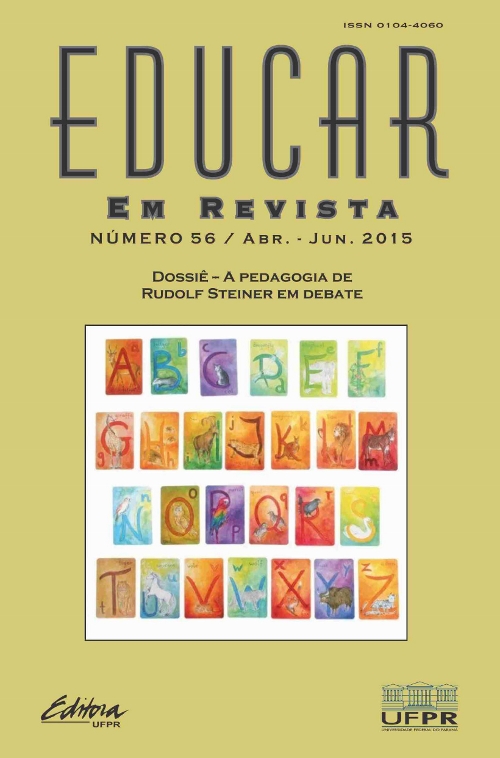Empirical Research on Waldorf Education
Resumo
Waldorf education began in 1919 with the first Waldorf School in Stuttgart and nowadays is widespread in many countries all over the world. Empirical research, however, has been rare until the early nineties and Waldorf education has not been discussed within educational science so far. This has changed during the last decades. This article reviews the results of surveys during the last 20 years and is mainly focused on German Waldorf Schools, because most investigations have been done in this field. Findings are reported with respect to the following central aspects of Waldorf education: the holistic and integrative approach, the self-governance in the organization of the Waldorf schools, the Waldorf curriculum, and the principle of class teachers from 1st to 8th grade. Furthermore, Waldorf education also provides its own unique teacher training. All of these aspects have been explored and evaluated from different points of view and with different methods. The results show strengths as well as weaknesses of Waldorf education in the daily practice in schools, which indicates the kinds of challenges Waldorf education will have to face in the upcoming decades. The authors themselves have contributed in several investigations to the field of Waldorf education.
Keywords: Waldorf Education; Waldorf teacher training.
Publicado
Como Citar
Edição
Seção
Licença
Todo o conteúdo do periódico está licenciado sob uma Licença Creative Commons do tipo atribuição BY.
Os Direitos Autorais para artigos publicados na Educar em Revista são do autor, com direitos de primeira publicação para a revista. A revista é de acesso público (Open Access), sendo seus artigos de uso gratuito, com atribuições próprias, em aplicações educacionais e não-comerciais.



